Genevieve is an entrepreneur, business owner, outdoor enthusiast, competitive sailor, environmentalist, sustainability advocate and, of course, mindful traveler (she actually lives on a sailboat!) doing her part for zero-waste living and low-impact travel. She is co-founder of Eco Collective in Seattle, a “one-stop shop for all things sustainable”, offering eco-friendly and zero-waste alternatives to all the products we use in our daily lives, ranging from home cleaning products to toiletries to kitchen basics to travel gear.
What is a zero-waste lifestyle, in your view?
The way I define it is as a holistic way to have a smaller footprint. So, minimizing your impact, in whatever way it makes sense for your lifestyle.
What set you on the path towards zero-waste living?
A few things, but a few years ago, I was living in an apartment here in Seattle and we had a small bathroom trash can and I just found myself having to empty this trash can all the time because it would fill up constantly. I just couldn’t understand how I was making so much trash. So I did a trash audit and I started to consider what I was throwing away and how I could minimize that. First, I started to make small changes, like instead of using tissues, I switched to a handkerchief. When I used up my last razorblade I switched to a safety razor…that one took some research! I just started changing one thing at a time and I was hooked. I mean, it was so satisfying and eventually, we didn’t even need a trash can in the bathroom anymore because everything we used was either compostable or re-useable. So yeah, that was really what began my zero-waste journey.
What are the biggest lessons you’ve learned on this journey towards leading a zero-waste life?
The most important thing about the way that I’ve done this is changing one thing at a time. Because if I were to try to revamp everything all at once, I don’t think I would’ve stuck with it. I think I would’ve gotten bored, first of all, and I think I would’ve gotten overwhelmed and just thought “this is impossible”. But because I looked at it as simply changing one thing at a time, then it became a challenge and it was really satisfying. So, anytime I researched a new product and spent that much time finding the right thing for me and for the Earth, it was just really rewarding. That was really revolutionary for me and I think that is kind of the key to the whole movement, it’s not doing it overnight, just changing one habit at a time. I mean, I have been zero-waste for 4 years now and I’m still making changes!
People ask me all the time how do I get my friends, family, neighbors on board, and I think it’s as simple as inspiring change. It’s actually kind of fascinating when you do one thing at a time, because you’re talking about it and someone says “oh, yeah, that sounds really easy” or “that sounds like an even better alternative” and then, all of a sudden, they’re kind of hooked too.
Another lesson, I think, is to not beat yourself up. Although it’s good to have your rules about the way you’re going to do things, I think that when we get so zeroed in on that, it can take away from the bigger conversation. Because if you’re worried about one thing that you did “wrong”, but there are still areas in the U.S. that don’t recycle, you’re sort of picking pebbles. So, it’s not only important emotionally and to keep you going on this journey, but it’s important to find your happy ground, find that place where you feel like you’re doing everything in your power but can still be compassionate with yourself and know that, every now and then, you’re going to get your coffee in a to-go cup, or you’re going to forget your reusable bag for the grocery store. That stuff is going to happen, but if you can let that go and then think about what else you can do with your time…can you request that your city gets curbside composting? Can you lobby your local grocery stores to ask them for bulk? Doing those bigger things, where you’re getting involved with the community, where zero-waste becomes less of a personal journey and more of a global movement, that’s also really important.
“So, anytime I researched a new product and spent that much time finding the right thing for me and for the Earth, it was just really rewarding. That was really revolutionary for me and I think that is kind of the key to the whole movement, it’s not doing it overnight, just changing one habit at a time.”
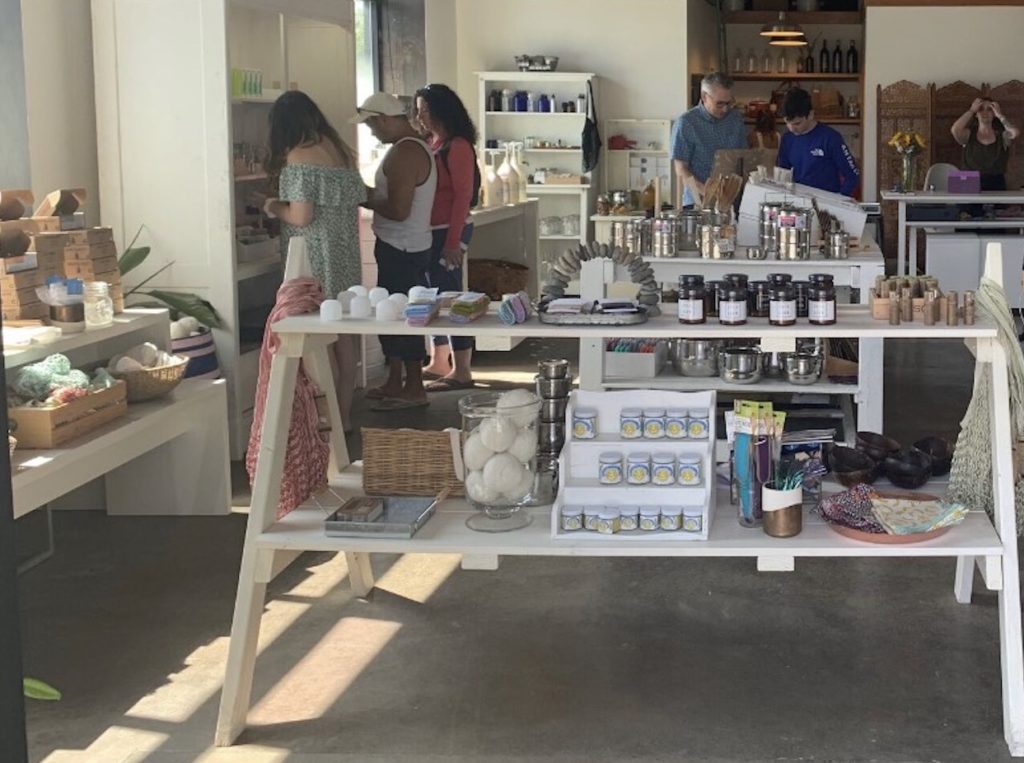
Zero-waste items on display at Eco Collective Seattle
What do you think are the biggest obstacles holding people back from going zero-waste?
People think it’s a lot harder than it is. Sometimes, when I talk to someone about it, they’re either sort of sceptical, you know, so they’re just not that interested, or they think it takes too much effort. But I do think it’s a lack of awareness too.
For the most part, a lot of my friends have started making changes now that I have, it’s been very contagious, but people still don’t understand what it is. For example, I’ll be at somebody’s house and they’ll open a bag of chips and they’ll be like “I’m so sorry”, and I just tell them it’s OK, I’m not here to judge or anything and, to be real, sometimes we buy chips too, you know? But I think it’s as simple as making those small changes and it’s as simple as asking yourself, what actions can you take? I think a lot of people see it as – all of a sudden you have no plastic in your life. I mean, that’s impossible right now. It may still be the goal but the questions should really be; what can we do in our own lives? What makes sense for us? Maybe to be zero waste for you means that you carpool or that you don’t travel as often. Maybe you buy your food in bulk. And maybe for someone else, it means that all of their bathroom products are refillable or they’re buying second-hand clothes. It’s about what zero-waste really means to you, because it has to fit your lifestyle.
Another issue could also be convenience. For example, we have curbside composting here in Seattle, and now even businesses are required to compost. I think we need to do with composting what we did with recycling because, you know, food waste is one third of all waste and that’s really significant because food doesn’t break down in landfills. But even more so, I think with recycling, we’re suddenly guilt free, so I think we kind of need to have that next revolution and it’s about composting and making it accessible and convenient for people.
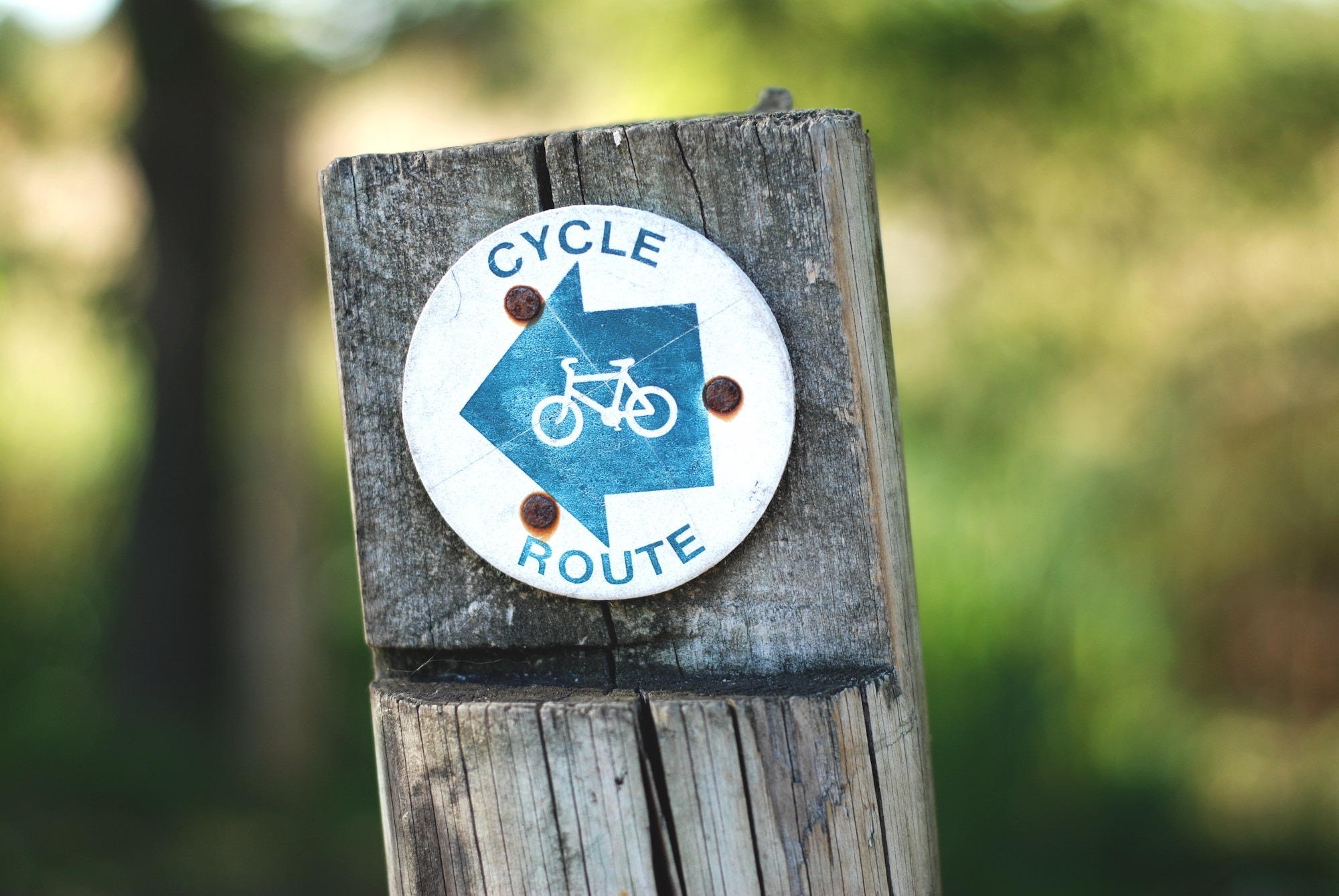

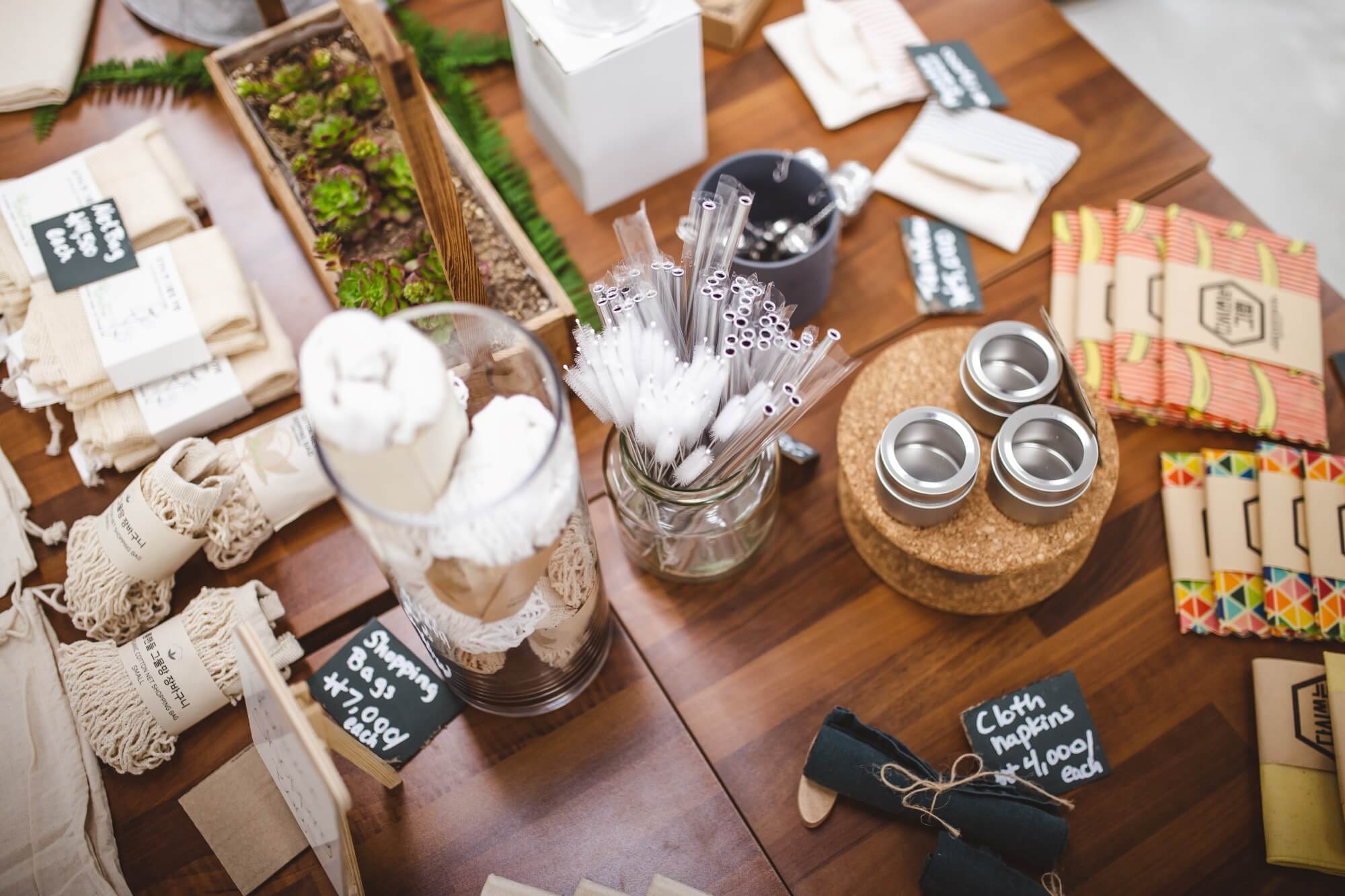
What are your top tips to get started on the path towards a low impact, zero-waste lifestyle?
I would say, start with something that inspires you. Anything from carrying around your refillable coffee cup, or maybe you want to switch over all your makeup, or try out this new biodegradable deodorant. Whatever it is that piques your interest, go there first and then when something else piques your interest, it’s time to move on. But I would say, go with your inspiration, because then it becomes a project instead of a chore. I would also say, do a trash audit! Literally look through your trash and see what’s causing the most waste and see what you can change. Because I think you can read a lot of guides that will tell you all the ways you can switch [to zero-waste alternatives], but maybe for you it starts with grocery bags, maybe it’s learning to make something at home that usually comes wrapped in plastic…it could be anything. But it all starts with seeing what trash you’re making.
What does being a mindful traveler mean to you?
I mean, for me, part of mindful travel is being a conscious traveler and trying to be aware of your impact, both environmentally and socially, which is why I think zero-waste travel sort of wraps up into it.
Yes, absolutely! For me, mindful travel starts with preparing for a trip. I will research an area and figure out what the deal is with their trash-recycling-compost set up, which is kind of a weird thing to research and it can be hard to find information on certain destinations, but it’s super helpful because then you know what to expect. Because typically, we cook in at our accommodation a lot. So, if I know I won’t have both [recycling and composting], then I mostly buy produce and find other things in cans, if I need to, or in glass, but then I still have to figure out what to do with the waste. We were recently in Costa Rica and some of the AirBnBs would have just a trash can and so I’d be figuring out what to do with my recycling or food waste…Yeah, so that was kind of eye opening in the research you do before you go, because things can change per town.
I think being mindful about what you bring with you is important too, which also has to do with your research and preparing for the trip. There’s a lot to be said for low-impact traveling with zero-waste toiletries, for example, and just being prepared for what you’ll need. I think these days, many of us, when we travel, we bring the basics but then we count on the hotel having shampoo and conditioner or soap, and they’re always in these tiny plastic bottles and it’s just the worst! So, I have a face soap that I travel with that I also use as hand soap, body soap, and then typically I’ll also cut off a piece of a shampoo bar and I’ll bring conditioner in a small refillable bottle…so I have all my travel mini toiletries and they’re all in tiny little tins or containers that are refillable. The other thing is going solid. It’s really great because then you don’t have to worry about the whole liquid TSA thing! Zero-waste toiletries just lend themselves to travel really well.
So, for me, that’s all been kind of a game changer; just preparing for everything you’re going to encounter at your destination, in terms of your impact, and already being mindful before your trip.
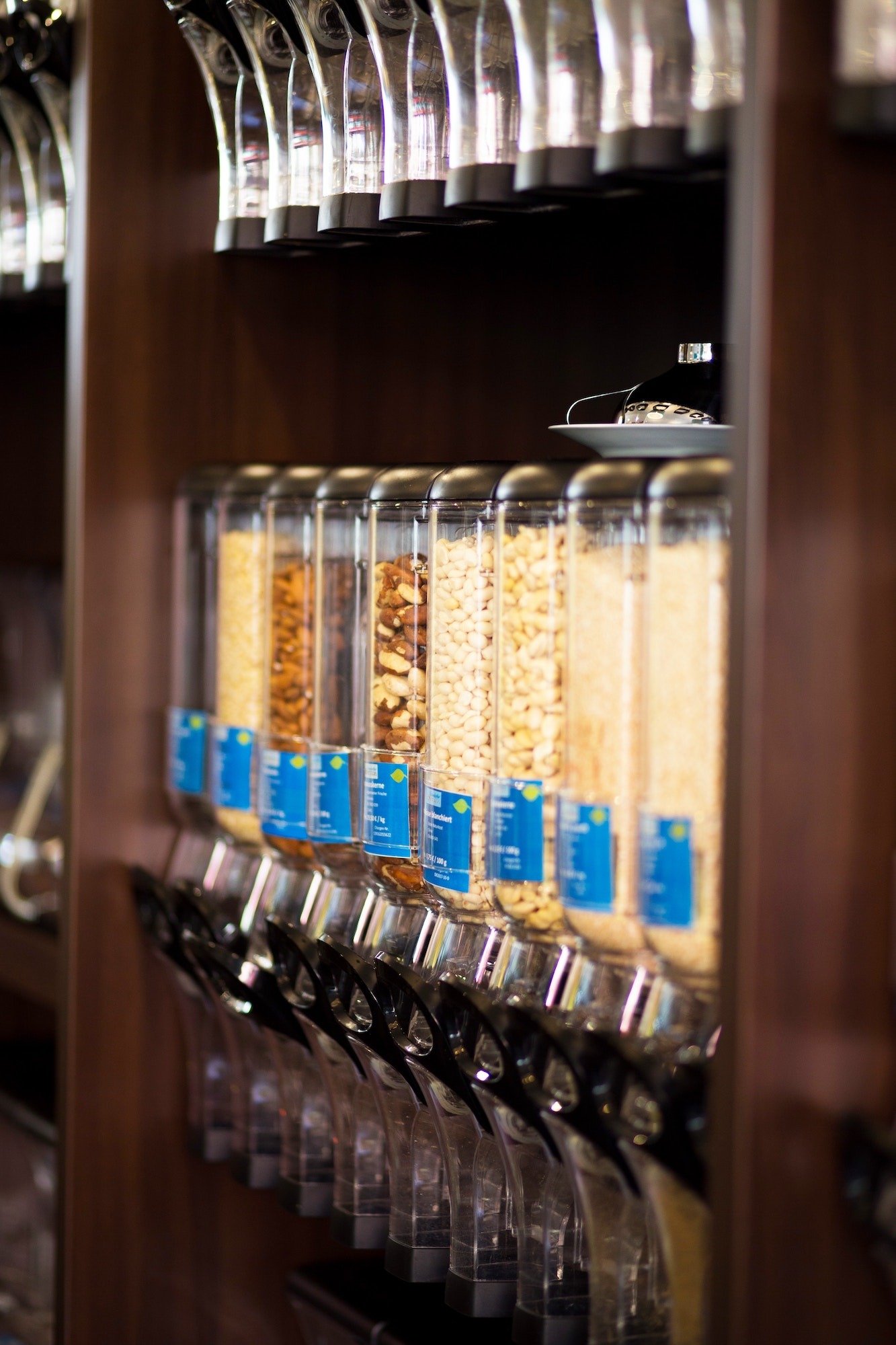
How do you think we can be more mindful about the waste we produce and the environmental impact we have while traveling?
You mentioned earlier that maybe one way people can lower their impact is by choosing to travel less. This is a big discussion in the travel community right now, this notion of “flight shaming” and cutting back on emissions by slow-traveling, taking fewer flights or, in some cases, no flights at all. What are your thoughts on all of this?
You know this is a really interesting topic because, when people say slow travel, the truth is that, in many cases, it’s just not feasible. I mean, I live in Seattle but I have family in the East Coast. If I’m going across the country to see them, I can’t exactly get on a train because it’ll just take way too long. I’m sure that the most sustainable thing to do would be to move near them, but that’s not what’s going to fit my current lifestyle. So I don’t really subscribe to a lot of guilt when I’m traveling, but I’m hyper-aware of the ways that I can make it as sustainable as possible. I have heard that airlines are developing some alternative fueling methods that are going to be ready a lot sooner than we expect, and I think that’s pretty huge. For those of us with means, we can sort of invest in things like that, especially if frequent travel is something that you do for work or for pleasure.
So, in my case, there’s a couple things that I do; I tend to fly direct because it uses less fuel and I travel with just a carry on, which I think they’re getting much better at encouraging people to do. Because, literally, how weighed down the plane is means more fuel. And then – a lot of people are really controversial on this – but I personally do really like doing carbon offsets. I think the reason that it’s so controversial is that people don’t want to have anyone under the impression that paying for carbon offsets fixes the environment…you’re not actually offsetting the footprint of flying, but I think it’s something that is sort of within our power to do in the meantime and, if you’re going to fly anyway, then you might as well invest in something that makes somewhat of a difference. To me, it’s about being aware, you know, recognizing that we have this impact when we travel and doing something, even though we know it might not necessarily change the world.
Say you fly somewhere but then when you get there you don’t rent a car or you don’t fly within your destination. Maybe you rent a bike or maybe you plan a trip that’s in a concentrated area where there’s lots to see and do within walking distance, or you’re getting around with public transportation. I mean, that’s so doable and it kind of lets you get to know the place more because, if it’s not to see family and it’s not for work, I think the point of travel is to expose yourself to other cultures. I think we in America are quick to hop in our rental cars and not ever talk to any locals, but to actually get out there and do things as the people there do them, travel simply, open those conversations…I think that’s all part of the idea of conscious travel.
In terms of being a mindful traveler overall, not just on the environmental or sustainability front, but also in other ways. What are some of the ways that you think we can be more mindful travelers?
Well, something that we always try to do is to learn the language, at least enough so that we can connect…because most countries will be pretty forgiving if you’re not fluent, and it goes such a long way to be able to say, “OK, I know a little bit, enough to connect and engage with you”. The whole reason I travel is to learn from other cultures; environmentally too, because I want to learn about their method of brewing coffee or whatever it may be. So, wherever we go, all we’re trying to do is talk to the locals, hang out with people and just get to know them because, not only are you going to find some really amazing, undiscovered, untouched spots, but I think you’re just going to learn and benefit from having those conversations, striking it up on something you have in common and then getting to know how someone lives their life.
Also, I travel pretty light and this is something that I’ve really started to enjoy. Although it takes a little bit more time to pick what you’re going to take, it really limits your choices. And that can be really enjoyable, because you’re there and you just don’t have to think [about what to wear], you just have your basics and you’re not lugging around a suitcase, which I think can help you feel more at home and like you stand out less. Just being really purposeful and asking yourself “what am I really going to need on this trip?” and focusing on the experiences you have while you’re there and not so much on what you look like or what you’re wearing.
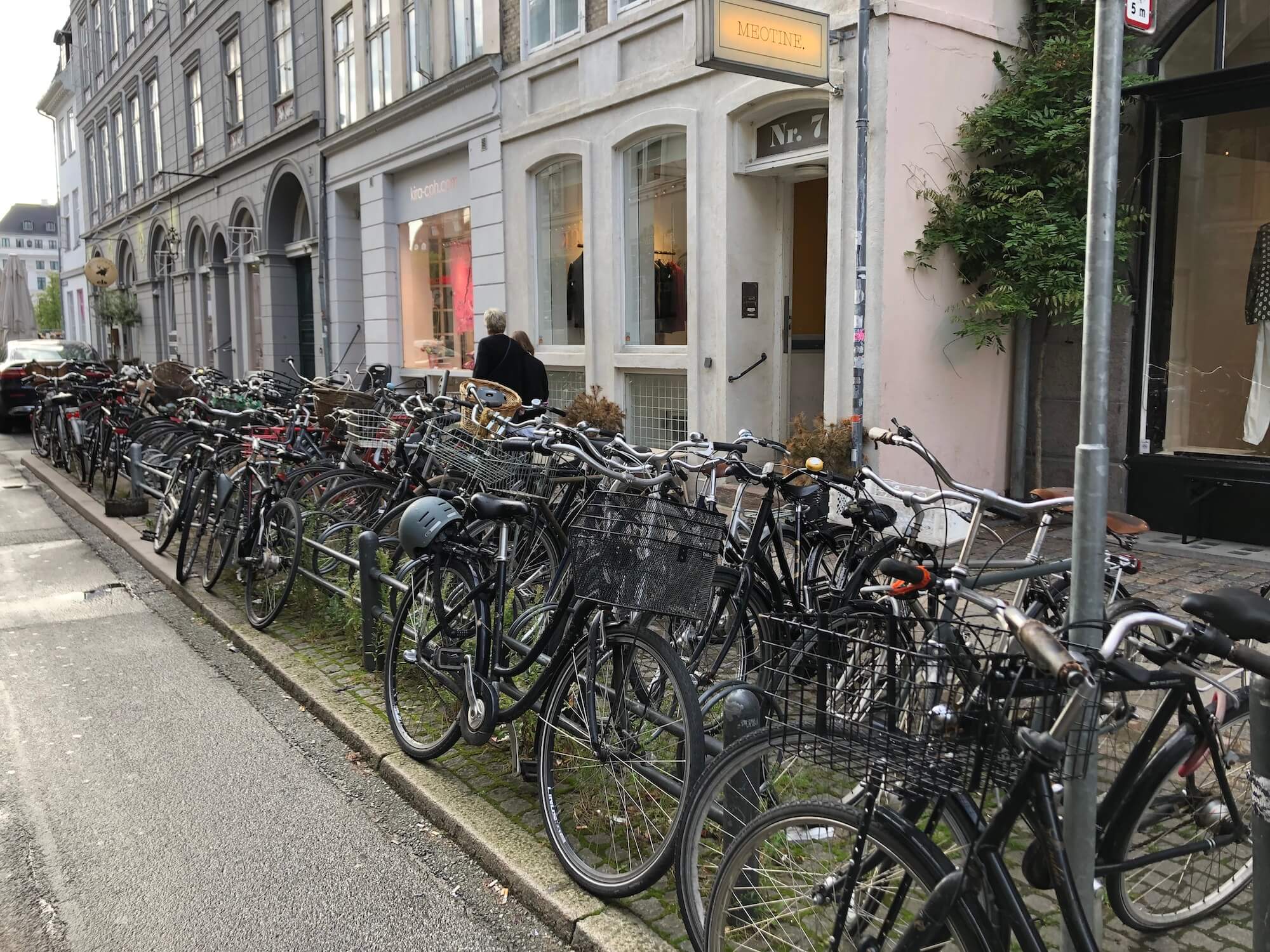
What are the top zero-waste items you recommend for mindful, low-impact travel?
I would say, multipurpose soap is my first one, and then I would definitely say toothpaste tablets, because they are so cool and make so much sense. A handkerchief because, no matter where you go, you usually need paper towels or napkins. I really like taking an insulated bottle; I can literally get my coffee in the morning, then fill it up with water for the plane ride because, even if they’re pouring into your own container on the plane, they’re still pouring out of a plastic bottle. If I do want to get a drink on the plane, I’m usually going to order either a sparkling water or maybe a beer, something that comes in an aluminum can that they’re going to recycle – because I’m usually flying with Alaska [Airlines] or with another pretty conscious airline. But typically, I will just have my water ready to go. And then, I can put food in there, put leftovers, I mean you can literally use an insulated bottle for anything…even for compost, to carry it around until you’re somewhere where you can dispose of it. So, that’s a big one. I always travel with a fountain pen, which might be kind of weird, but I feel like you always need a pen and they’ve come such a long way that traveling with them is so easy because they’re very small and compact.
You mentioned that you travel a lot with Alaska, which is known as one of the more sustainable airlines. Is that something you think about as well when you’re booking accommodation? How low-impact or eco-friendly it is?
Yes! I think that’s huge. We camp a lot and, a lot times, the reason that we camp is because we want to be outside, in nature, the entire trip but also because we want to be so simple and self-sustaining. We’re not camping in a campground that has a lot of heavy use, necessarily, we’re doing it so that we can really minimize our impact. But if I do book accommodations, I’ll book for the first night we fly in and for the night that we fly out. We’ll get an AirBnB and I think that’s a really nice way to support the local economy, of course making sure that it’s a local who has their home there and they’re trying to make a living. And then, I try to find some place that either has solar energy or something like that, which you can’t find everywhere but if it’s available I like to book it. There are some super sustainable hotels cropping up, but for me it’s about interacting with the locals, supporting their economy, hopefully, and doing what I can to support the local businesses that are environmentally focused.

You can follow Eco Collective on @ecocollective_ and Genevieve on @genevievelivingston

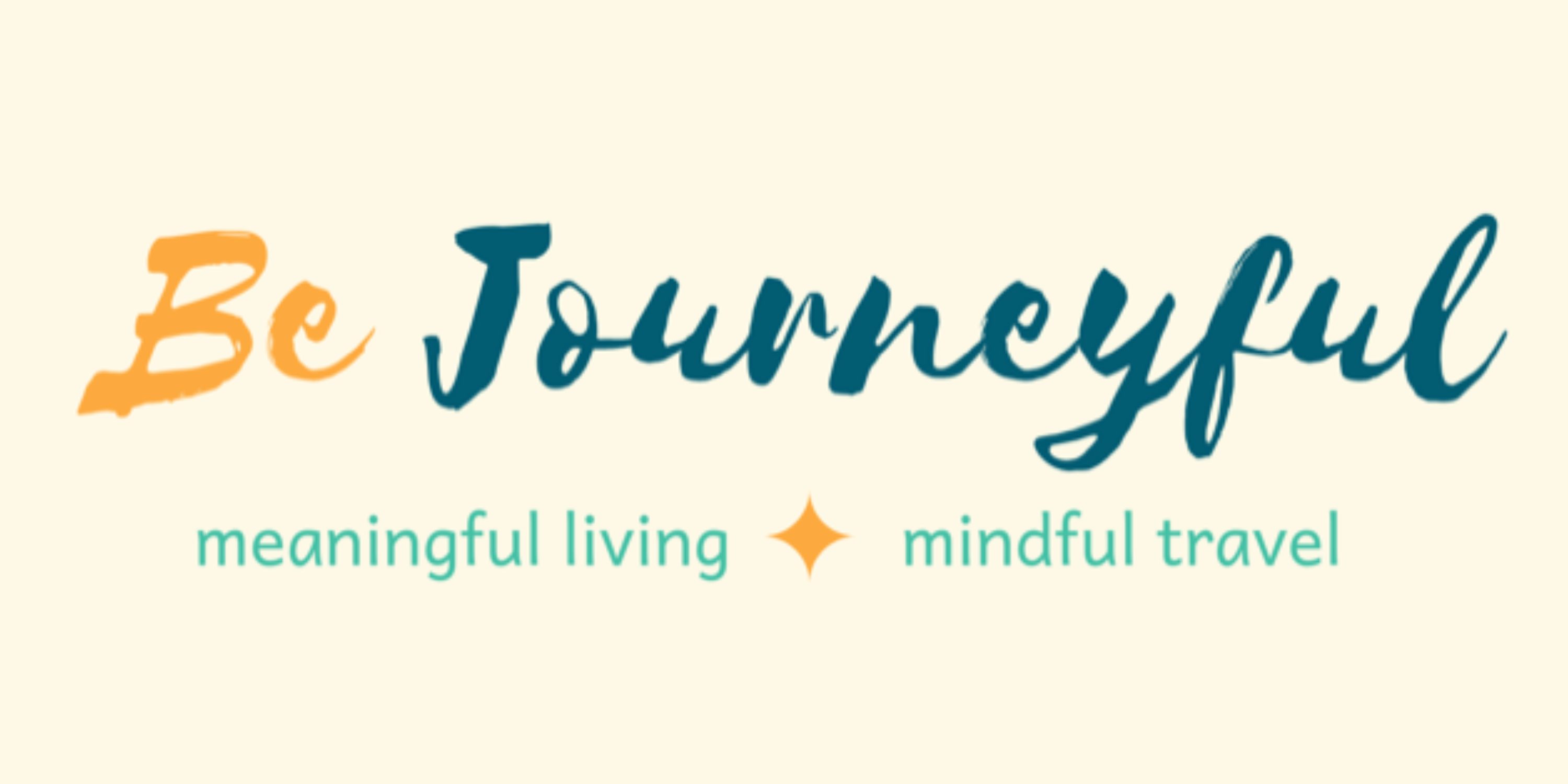



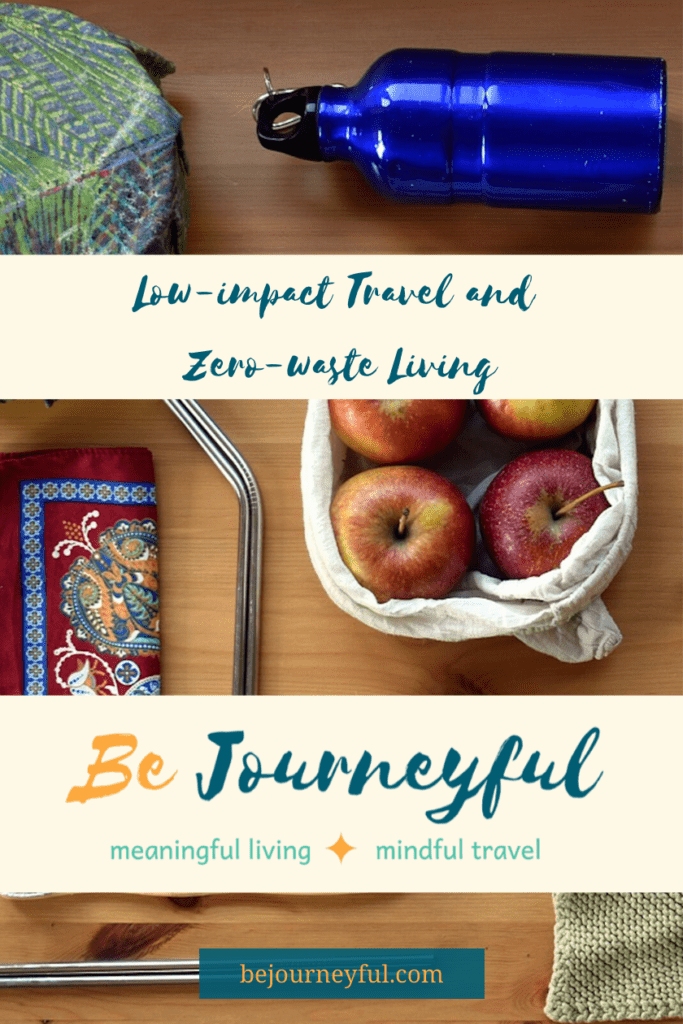
Recent Comments